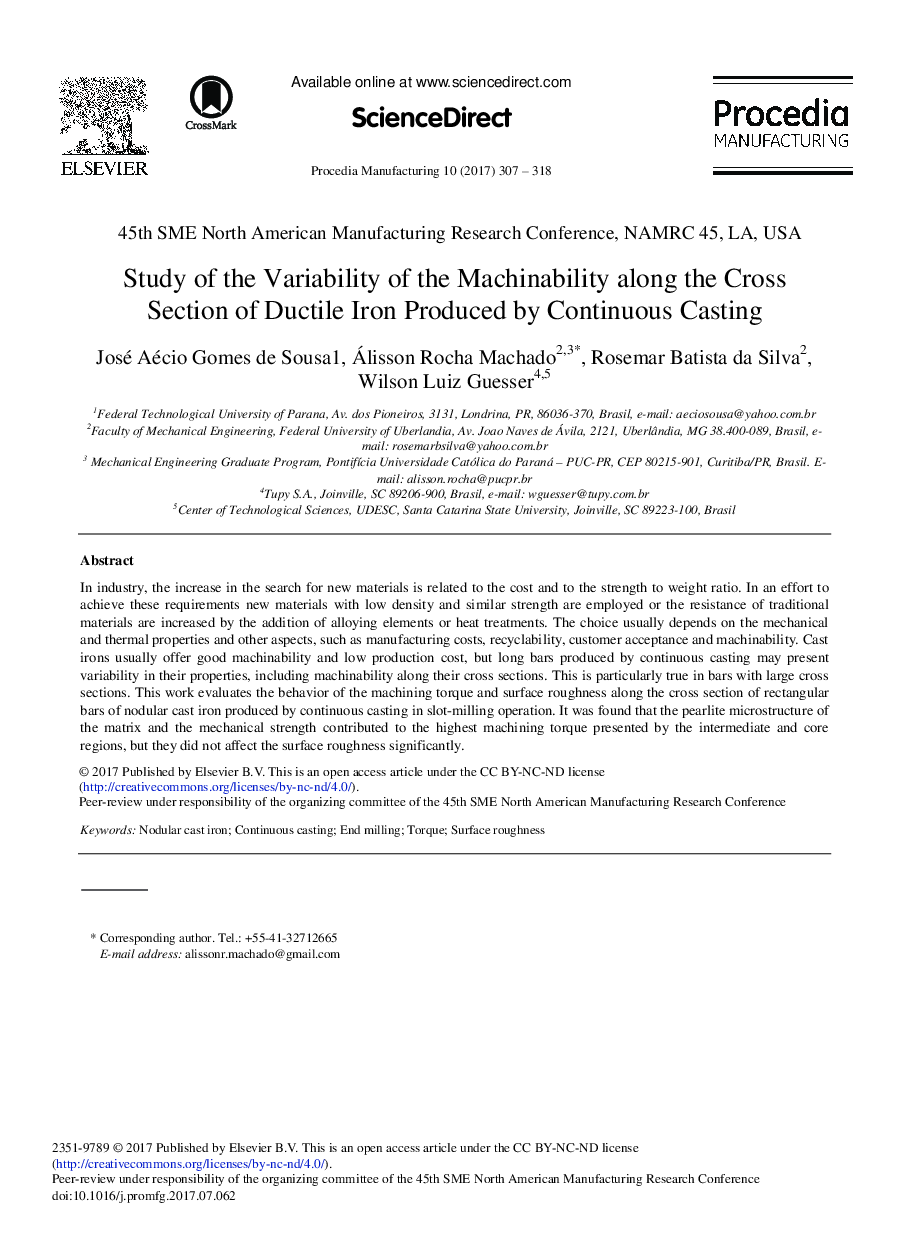| Article ID | Journal | Published Year | Pages | File Type |
|---|---|---|---|---|
| 5128778 | Procedia Manufacturing | 2017 | 12 Pages |
In industry, the increase in the search for new materials is related to the cost and to the strength to weight ratio. In an effort to achieve these requirements new materials with low density and similar strength are employed or the resistance of traditional materials are increased by the addition of alloying elements or heat treatments. The choice usually depends on the mechanical and thermal properties and other aspects, such as manufacturing costs, recyclability, customer acceptance and machinability. Cast irons usually offer good machinability and low production cost, but long bars produced by continuous casting may present variability in their properties, including machinability along their cross sections. This is particularly true in bars with large cross sections. This work evaluates the behavior of the machining torque and surface roughness along the cross section of rectangular bars of nodular cast iron produced by continuous casting in slot-milling operation. It was found that the pearlite microstructure of the matrix and the mechanical strength contributed to the highest machining torque presented by the intermediate and core regions, but they did not affect the surface roughness significantly.
